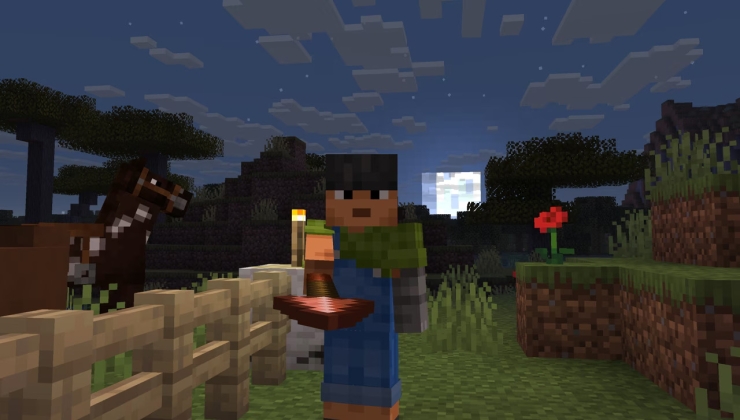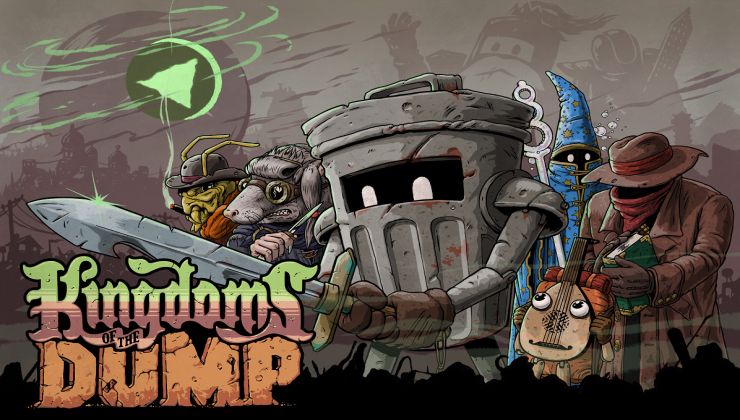Here is your daily dose of WTF. Linux Kernel developer Greg Kroah-Hartman has called out "researchers" from the University of Minnesota and banned them from submitting code to the Linux Kernel.
This story is pretty wild and completely ridiculous. In the name of some apparent research and a written paper titled, "On the Feasibility of Stealthily Introducing Vulnerabilities in Open-Source Software via Hypocrite Commits", the people involved have now been called out on "sending known-buggy patches to see how the kernel community would react to them".
Part of it goes further, as patches have continued to roll in after the paper was published so they are "continuing to experiment on the kernel community developers by sending such nonsense patches" with the patches not actually doing anything at all. Kroah-Hartman certainly wasn't holding back:
Our community does not appreciate being experimented on, and being "tested" by submitting known patches that are either do nothing on purpose, or introduce bugs on purpose. If you wish to do work like this, I suggest you find a different community to run your experiments on, you are not welcome here.
Because of this, I will now have to ban all future contributions from your University and rip out your previous contributions, as they were obviously submitted in bad-faith with the intent to cause problems.
In a further post Kroah-Hartman sent in a patch to revert a bunch of changes done from the group, so they can go over them fully to ensure they're safe and actually do something.
From a certain point of view, it's nice to know that the Kernel team are good at picking up malicious code and attempts to introduce bugs - but doing this to such a huge important project, live and in the open in the name of research? That's just not right.
Update: so the plot thickens it seems! Sarah Jamie Lewis, the Executive Director of Open Privacy, pointed out on Twitter (be sure to read the thread) that they and others expressed concerns about it in 2020 in a co-signed letter to the IEEE S&P (IEEE Symposium on Security and Privacy). It really doesn't look good.
Update 2: Leadership in the University of Minnesota Department of Computer Science & Engineering department released a statement on Twitter, noting that it has suspended the research and will be looking into how it got approved in the first place.
Quoting: GuestWhat do you call foreign when the subject at hand is Linux kernel development?The BSD crowd.
Quoting: GuestActually a good point. I hadn't thought of it like that.Quoting: Loftyforeign interference ?What do you call foreign when the subject at hand is Linux kernel development?
il stick with my first thought on the matter.
Last edited by Lofty on 21 Apr 2021 at 9:46 pm UTC
Quoting: Alm888I have a research proposition: let's get ourselves a pharmaceutical company and force this company to introduce poison in some of its medications and distribute those poisoned drugs trough common distribution network. In the name of research, of course! I think we must determine the pharmaceutical industry's ability to identify and block malicious drugs!Wasn't that Oxycontin?
HINT: That was a sarcasm.
(No, my mistake--they did that one deliberately)
Last edited by Purple Library Guy on 21 Apr 2021 at 11:04 pm UTC
Quoting: LoftyEveryday we step closer to the brink of idiocracy.https://www.youtube.com/watch?v=v435y5TNMjQ
Pretty sure it's already confirmed...
Quoting: Purple Library GuyThis is where the software used for gamingonlinux needs to have different things besides just a 'like'. As I'd like, laugh, cry and praise this comment!Quoting: Alm888I have a research proposition: let's get ourselves a pharmaceutical company and force this company to introduce poison in some of its medications and distribute those poisoned drugs trough common distribution network. In the name of research, of course! I think we must determine the pharmaceutical industry's ability to identify and block malicious drugs!Wasn't that Oxycontin?
HINT: That was a sarcasm.
(No, my mistake--they did that one deliberately)
Quoting: GuestLinux needs more code quality control in the first placeI think good code reviews are under-appreciated. As someone who spends quite a bit of time reviewing other people's code submissions to see what they need to improve/fix, I can tell you it's way less "fun" than writing code yourself. Sometimes it's interesting to see how someone does something clever, but most of the time it's "should I just rewrite this myself, or take the time to explain why it's wrong?"
Quoting: GuestIf i understood well,there are 2, distinct facts here:I think it is both. A reviewer approaches reviews with the mindset that the requester wanted to help and (at least partially) did their home work. Assuming that the general intention is wrong, gives a very different angle to reviews.
1) Researchers did it wrong.
2) Linux needs more code quality control in the first place, since the malicious code made its way into mainline and stayed there unnoticed for a long time.
Personally, i don't care much about the former, but the latter scares me and still i notice that everyone is focusing on #1.
Quoting: GuestYes. Actually I would even go further. This _was_ a fully executed social hack done “in the name of research”. Really disgusting.Quoting: jens[..] A reviewer approaches reviews with the mindset that the requester wanted to help and (at least partially) did their home work. Assuming that the general intention is wrong, gives a very different angle to reviews.Unfortunately, that was the point of the research itself.
Putting that way, it is a form of successful social hacking.
The bad-ol'-puddycats at the U o' Monty were stopped by the bazaar I work in and a paradigm I believe in
I furiously fill with a sense of pride when I see my Community respond to a threat. The Community is so egalitarian and sharing, it's often easy to forget that it has real teeth. So, yeah, let's hold UoM accountable in a meaningful way: exile and hopefully, possibly, litigation. (also, it'll be interesting to see what, if any, reaction Anonymous-types have to this debacle.)
Researchers like these, without an atom of a jot of scruples, flouting the very notion of ethics, deserve exile at the very least. Personally, I'd love to see these "researchers" drummed from the scientific community forever. They're either too unethical or too sack-of-hammers ignorant to continue in academia.
So huzzah, brethren, sistren, et al of the Community. Raise your metaphorical glasses and join me in a toast to FOSS and another successful blow to the Cathedral!
** Ok, I need to take a cold shower now, before my sense of drama carries me yet further away. **
Last edited by Nanobang on 22 Apr 2021 at 12:56 pm UTC
Quoting: PhlebiacI'm grateful that we have the manpower to actually do this work in the Linux world, although it may not be appreciated as much as it should be.Quoting: GuestLinux needs more code quality control in the first placeI think good code reviews are under-appreciated. As someone who spends quite a bit of time reviewing other people's code submissions to see what they need to improve/fix, I can tell you it's way less "fun" than writing code yourself. Sometimes it's interesting to see how someone does something clever, but most of the time it's "should I just rewrite this myself, or take the time to explain why it's wrong?"
FreeBSD had quite an ordeal with the Wireguard port to their kernel recently; and the defective code probably slipped through because they don't have enough 'eyeballs' on the code in the first place:
https://arstechnica.com/gadgets/2021/03/buffer-overruns-license-violations-and-bad-code-freebsd-13s-close-call/
Last edited by walther von stolzing on 22 Apr 2021 at 12:43 pm UTC
Sorry if I'm wrong to think so.
Last edited by Mohandevir on 22 Apr 2021 at 12:58 pm UTC
Quoting: MohandevirSorry if I'm wrong to think so.Please, friend Mohandevir, don't ever apologize for what you think. Ideas are the last bastion of freedom, a cornerstone of democracy, and the fuel of all that is Open Source, don't you think? ;)
I, for one, thank you for sharing your thoughts with us. :)
Quoting: NanobangNice answer from you. Thanks. What I really meant it's that it's possible that I'm being off the track and I'd like to be educated, if possible. It's just a first impression that might be based on false assumptions, from my part.Quoting: MohandevirSorry if I'm wrong to think so.Please, friend Mohandevir, don't ever apologize for what you think. Ideas are the last bastion of freedom, a cornerstone of democracy, and the fuel of all that is Open Source, don't you think? ;)
I, for one, thank you for sharing your thoughts with us. :)
Just in case people aren't familiar, an IRB, or Institutional Review Board, is the group that review research proposals and get to say "no that's silly and/or unethical".
Quoting: slembckeUff. My cousin-in-law is an engineering prof there and seems pretty mad that the IRB allowed this. His words had more swearing though... Not clear if he knows more details than the article above though.I can understand the swearing. This shines a pretty bad light on the whole university and everyone who graduated/works there. It wouldn't surprise me if this had consequences outside the kernel development, like editors of journals double-checking submissions from the University of Minnesota due to ethical concerns. Those guys probably hurt their own University more than the Linux project...
Just in case people aren't familiar, an IRB, or Institutional Review Board, is the group that review research proposals and get to say "no that's silly and/or unethical".
Quoting: Whitewolfe80I like the second press statement from the university we will investigate on how this got approved in the first place translation someone getting fired in the morning.While I and others would love to believe that. Based off the fact that this continued to occur after they were "discovered" nor have any names involved been leaked or revealed by the University. They may be inclined to attempt to bury it, which isn't unheard of regarding Universities and controversy. This honestly violates various laws like,
https://en.m.wikipedia.org/wiki/Computer_Fraud_and_Abuse_Act yet no charges have been filed. Hopefully there are at least lawsuits.
Quoting: InhaleOblivionIntent is hard to prove though i mean if its is everytime they try to submit a patch then theres no room for doubt. Once or twice could be genuine errorQuoting: Whitewolfe80I like the second press statement from the university we will investigate on how this got approved in the first place translation someone getting fired in the morning.While I and others would love to believe that. Based off the fact that this continued to occur after they were "discovered" nor have any names involved been leaked or revealed by the University. They may be inclined to attempt to bury it, which isn't unheard of regarding Universities and controversy. This honestly violates various laws like,
https://en.m.wikipedia.org/wiki/Computer_Fraud_and_Abuse_Act yet no charges have been filed. Hopefully there are at least lawsuits.











 How to setup OpenMW for modern Morrowind on Linux / SteamOS and Steam Deck
How to setup OpenMW for modern Morrowind on Linux / SteamOS and Steam Deck How to install Hollow Knight: Silksong mods on Linux, SteamOS and Steam Deck
How to install Hollow Knight: Silksong mods on Linux, SteamOS and Steam Deck